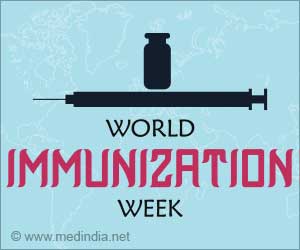Highlights:
- Racial discrimination based on ethnicity, skin colour or nationality continues to perpetuate health inequities.
- It is also an important risk factor for adverse pregnancy outcomes.
- It significantly increased the risk of having an underweight and/or preterm infant.
Having an underweight and/or preterm infant is associated with having experienced racial discrimination based on ethnicity, skin colour or nationality, according to a pooled data analysis of the available evidence published in the open access journal
BMJ Global Health.
According to researchers, the findings strengthen the data showing that racial discrimination raises the likelihood of adverse health consequences.
Racial Discrimination in Preterm Infants
Race is believed to be a social determinant of health and a risk factor for many diseases for several years. There is mounting evidence that upstream social, environmental, economic and political variables are the primary causes of health inequalities. However, racism, not a race, is frequently the underlying issue.
‘Women who experience racial discrimination during pregnancy are more likely to have adverse pregnancy outcomes.’
For instance, maternal mortality rates in the USA are two to three times greater for Black and Indigenous women than for White women. Similar disparities exist between Black and Asian women’s maternal mortality rates and White women’s maternal mortality rates in the UK.
The researchers looked for pertinent studies on self-reported race discrimination and premature birth (before 37 weeks), low birth weight, and high blood pressure associated with pregnancy. They analysed data published up to January 2022, in eight electronic databases to explore the patterns of racial disparities in pregnancy outcomes.
The final analysis contained the findings from 24 studies overall, with an average of 39 to 9,470 people per research. The majority (20) of the studies were done in the US.
Participants in the study were from different racial and ethnic origins, including those of Black or African American, Hispanic, non-Hispanic white, Mori, Pacific, Asian, Aboriginal, Romani, indigenous German and Turkish descent.
The researchers recognise that many of the studies included in the analysis of the pooled data were of low quality. Also, majority were USA-based. Few marginalised racial or ethnic groups, aside from African Americans, were represented in them. They might not thus be more broadly applicable to other racial and cultural groupings.
Advertisement
Researchers said, “Our findings align with existing evidence on perceived racial discrimination as an important risk factor for adverse pregnancy outcomes. Pervasive in people’s day-to-day lives, racism has far-reaching implications on the experiences of racialised individuals. As an upstream factor, it shapes other social determinants of health such as employment, poverty, education and housing. Relating more directly to health, racism can impact what services and resources are available, such as referral to specialist care, access to health insurance and access to public health services.”
The researchers emphasise several strategies, including the necessity of bettering physician training, to address how racism affects health outcomes.
Advertisement
They said, “This can be done by universally removing well-documented examples of racial bias which continue to perpetuate health inequities. This includes the lack of teaching on dermatology and differential disease presentations in non-White individuals, inaccuracies in pulse oximetry technology, unsubstantiated race-based adjustments to measuring renal function, and inadequate teaching around individual biases and the social drivers of health inequities.”
Source-Eurekalert News
















